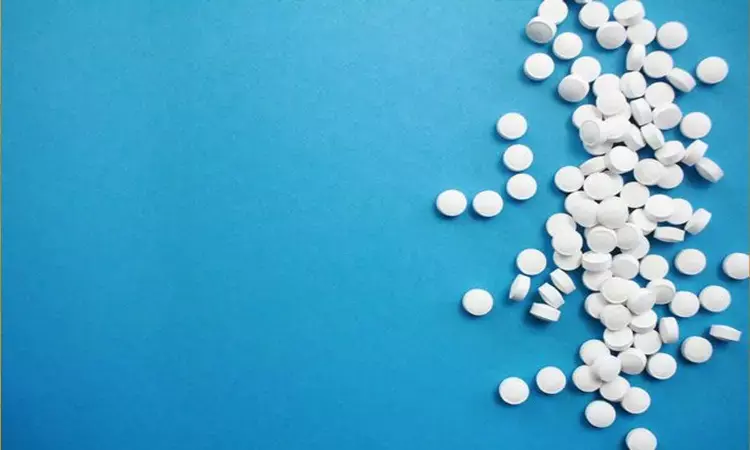- Home
- Medical news & Guidelines
- Anesthesiology
- Cardiology and CTVS
- Critical Care
- Dentistry
- Dermatology
- Diabetes and Endocrinology
- ENT
- Gastroenterology
- Medicine
- Nephrology
- Neurology
- Obstretics-Gynaecology
- Oncology
- Ophthalmology
- Orthopaedics
- Pediatrics-Neonatology
- Psychiatry
- Pulmonology
- Radiology
- Surgery
- Urology
- Laboratory Medicine
- Diet
- Nursing
- Paramedical
- Physiotherapy
- Health news
- Fact Check
- Bone Health Fact Check
- Brain Health Fact Check
- Cancer Related Fact Check
- Child Care Fact Check
- Dental and oral health fact check
- Diabetes and metabolic health fact check
- Diet and Nutrition Fact Check
- Eye and ENT Care Fact Check
- Fitness fact check
- Gut health fact check
- Heart health fact check
- Kidney health fact check
- Medical education fact check
- Men's health fact check
- Respiratory fact check
- Skin and hair care fact check
- Vaccine and Immunization fact check
- Women's health fact check
- AYUSH
- State News
- Andaman and Nicobar Islands
- Andhra Pradesh
- Arunachal Pradesh
- Assam
- Bihar
- Chandigarh
- Chattisgarh
- Dadra and Nagar Haveli
- Daman and Diu
- Delhi
- Goa
- Gujarat
- Haryana
- Himachal Pradesh
- Jammu & Kashmir
- Jharkhand
- Karnataka
- Kerala
- Ladakh
- Lakshadweep
- Madhya Pradesh
- Maharashtra
- Manipur
- Meghalaya
- Mizoram
- Nagaland
- Odisha
- Puducherry
- Punjab
- Rajasthan
- Sikkim
- Tamil Nadu
- Telangana
- Tripura
- Uttar Pradesh
- Uttrakhand
- West Bengal
- Medical Education
- Industry
In dermatological cases, Oral benzodiazepines safe and effective for periprocedural anxiolysis

USA: A new study conducted by Michelle A. Boettler and the team found that the use of oral benzodiazepines (BZDs) in periprocedural anxiolysis appears to be safe and effective in the short term. The findings of this study were published in the journal Dermatologic Surgery.
The researchers suggest, "the 2020 FDA black-box warning should not dissuade their appropriate use in dermatologic surgery and other low-risk outpatient procedures."
Barbiturates have a poor therapeutic index, so BZDs were popular in our nation and across the world for a variety of diseases several decades ago one of them is they are effective against periprocedural anxiolytic agents. The Food and Drug Administration (FDA) of the United States recently issued a black-box warning about the hazards of misuse and dependency.
Against the above backdrop, researchers conducted a systematic review to assess the safety and efficacy of oral BZDs for periprocedural anxiolysis in outpatient plastic surgery, dermatologic, ophthalmologic, and dental procedures done under local anesthetics. Despite the FDA's black box warning for benzodiazepines, no research investigated dependence or addiction.
A systematic evaluation of five databases was conducted in accordance with the criteria for Preferred Reporting Items for Systematic Reviews and Meta-Analyses. Data on the safety and effectiveness of oral benzodiazepines were taken from relevant journals.
The results of this study stated as follow:
1. There were 43 articles and 4,060 topics in all.
2. In most investigations, oral BZDs consistently had a good anxiolytic effect and displayed superior or comparable ratings in surgeon satisfaction, patient satisfaction, pain, and anxiety to comparison groups.
3. Thirty-five patients had temporary hypoxia, while two had transient hypertension.
4. There were 195 reports of minor, self-limiting side effects. In this therapeutic environment, none of the research addressed the hazards of misuse and dependency.
5. Adverse effects were recorded seldom, with just a few examples of transitory hypertension and hypoxia response to tactile stimulation or supplementary oxygen being documented.
In conclusion, the findings of this study points towards the fact that in dermatological practice, periprocedural oral benzodiazepines appear to deliver anxiolysis safely.
Reference:
Boettler, M. A., Shahwan, K. T., Cusick, A., Avila, C., & Carr, D. R. (2022). Safety and Efficacy of Oral Benzodiazepines for Periprocedural Anxiolysis. In Dermatologic Surgery: Vol. Publish Ahead of Print. Ovid Technologies (Wolters Kluwer Health). https://doi.org/10.1097/dss.0000000000003407
Keywords: Hypertension, hypoxia, dermatology, benzodiazepines, tactile stimulation oxygen, anxiolysis, sedation, dermatologic surgery,
Medical Dialogues consists of a team of passionate medical/scientific writers, led by doctors and healthcare researchers. Our team efforts to bring you updated and timely news about the important happenings of the medical and healthcare sector. Our editorial team can be reached at editorial@medicaldialogues.in.
Dr Kamal Kant Kohli-MBBS, DTCD- a chest specialist with more than 30 years of practice and a flair for writing clinical articles, Dr Kamal Kant Kohli joined Medical Dialogues as a Chief Editor of Medical News. Besides writing articles, as an editor, he proofreads and verifies all the medical content published on Medical Dialogues including those coming from journals, studies,medical conferences,guidelines etc. Email: drkohli@medicaldialogues.in. Contact no. 011-43720751


